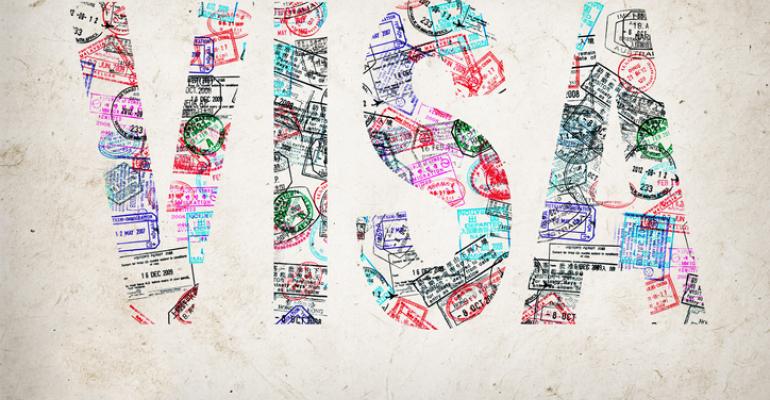Let’s say you’re planning events for a U.S. business-software company with a strong global client base. When it comes time to market your next annual blockbuster user-group conference, you can expect tough going if you want buyers from Mexico, India, Brazil, and Colombia to attend.
That’s because of the extraordinary interview wait times for first-time visitor visa applicants from those countries. For each of those four countries, the wait is currently well over a year; in fact, first-time applicants from Colombia are waiting more than two years:
Colombia: 886 days
Mexico: 587 days
Brazil: 492 days
India: 458 days
The U.S. Travel Association has been sounding the alarm about the impact of visa-interview wait times, and last fall it launched the “They Wait, We Lose” campaign. The group hoped to see the Biden Administration shorten wait times to 21 days in the three largest inbound markets (Brazil, Mexico, India) by April. With that goal clearly missed, U.S. Travel continues to raise its voice, recently calling the wait times “embarrassingly high” and noting “a concerning lack of progress on the issue.”
“It’s completely unacceptable and sends a message to the world that international visitors—and their spending—aren’t welcome here,” said Geoff Freeman, president and CEO of U.S. Travel, which estimates a loss in 2023 of 2.6 million visitors and $7 billion in spending due to likely international travelers’ inability to secure a visitor visa.
“Travel leaders worldwide are focusing on the economic opportunity of increased travel and passionately competing to attract global travelers, while the U.S. government has maintained roadblocks in the form of excessively long visa wait times and an outdated vaccination policy for entry,” said Freeman.
The “They Wait, We Lose” website gives travelers and businesses an opportunity to submit their stories about the impact of the visa delays. The comments run the gamut, documenting everything from missed weddings to lost business, with many touching on the meeting and convention industry. As one comment from a businessman in Miami sums up: “I can’t get colleagues and clients to U.S.-based exhibitions that we either attend or produce. [I] have written numerous times to a local Congresswoman who refers [the] petition to the State Department. Nothing gets solved; business is lost.”
The challenge in getting a visa is specific to countries that are not part of the U.S. State Department’s Visa Waiver Program. For the 40 countries in that program, visas are not needed for stays in the U.S. of 90 days or less.





